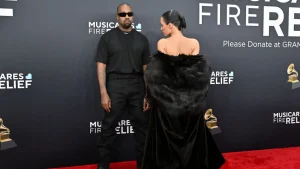
© Lucas Jackson / Reuters
In a significant development, the Mechanical Licensing Collective (MLC), a non-profit organization tasked with ensuring proper royalty payments to songwriters and music publishers, has filed a lawsuit against Spotify. The dispute centers around changes made by the streaming giant that have led to reduced payouts to publishers.
The crux of the issue lies in Spotify’s recent decision to categorize its Premium, Duo, and Family plans as a “bundled subscription offering.” This designation allows the company to pay a lower mechanical royalty rate, a move that the MLC claims is unlawful and undermines the rightful compensation of songwriters and publishers.

According to the MLC, Spotify’s assertion that its Premium service now qualifies as a bundled offering “is directly at odds with the Section 115 regulations” that the MLC is responsible for interpreting and applying. The collective argues that Spotify is “improperly characterizing the service as a different type of Subscription Offering and underpaying royalties, even though there has been no change to the Premium plan and no corresponding reduction to the revenues that Spotify generates from its tens of millions of Premium subscribers.”
Spotify, however, has defended its actions, stating that the terms it has implemented are the result of an agreement reached years ago under the Phonorecords IV royalty framework. The company has also boasted that it “paid a record amount to to publishers and societies in 2023 and is on track to pay out an even larger amount in 2024.”

The MLC appears unwilling to accept Spotify’s rebuttal, as evidenced by their decision to file the lawsuit on the same day the National Music Publishers Association (NMPA) issued a cease-and-desist letter to Spotify on behalf of its members.







4 thoughts on “Spotify Faces Legal Battle with Songwriters’ Collective Over Royalty Payments – Is the Streaming Giant Shortchanging Artists?”